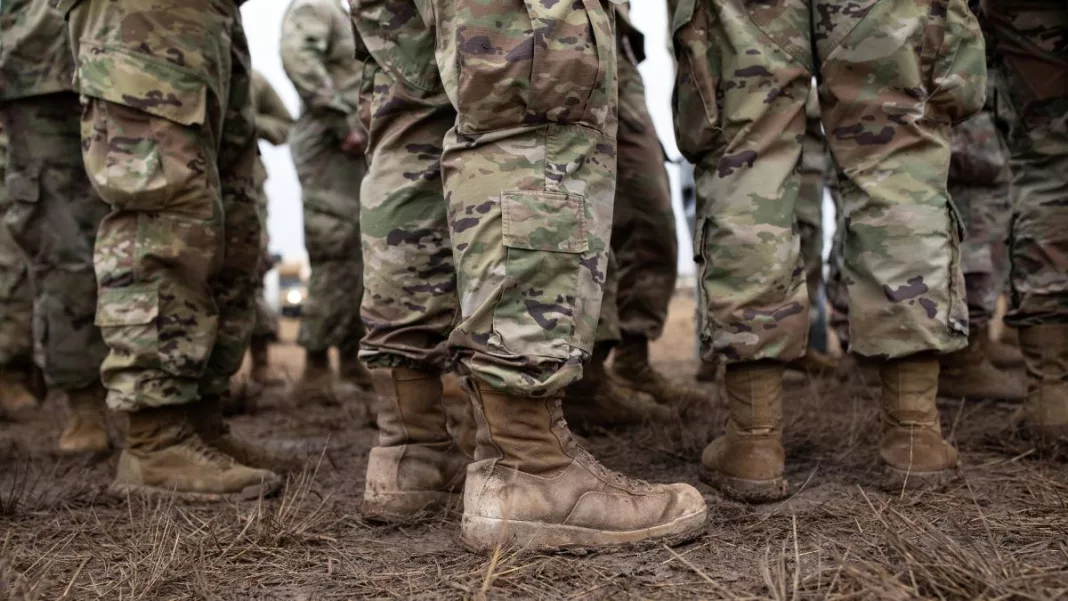A recently released report by the Center for a New American Security (CNAS) estimates that a veteran commits suicide every 80 minutes, noting that military suicides have skyrocketed since the beginning of the wars in Afghanistan and Iraq.
CNAS, a bipartisan think tank engaged in developing national security and defense policies, released its report titled Losing the Battle: The Challenge of Military Suicide to draw attention to the ongoing mental health epidemic in the military. The report cites post-traumatic stress disorder (PTSD), depression, chronic pain, and unemployment as contributing factors to suicide associated with deployment experiences. Soldiers suffering from traumatic brain injuries are also at an increased risk of dying from suicide, the report stated.
Notwithstanding great strides in outreach and prevention programs by the Veterans Administration (VA) and the Department of Defense, suicide rates are far greater among active and inactive service members than the general population, the study notes. The authors estimate that from 2005 to 2010, every 36 hours a soldier took his own life, with the Army reporting 33 deaths from suicide in July 2011 alone. While they acknowledge that the actual suicide rate among veterans is difficult to determine, the writers point to the fact that while only 1 percent of Americans serve in any military position, veterans represent 20 percent of suicides in the country.
The report emphasizes that PTSD, an anxiety disorder that occurs when one experiences a life-threatening event regardless of whether or not it results in personal injury or death, threatens the mental health of soldiers. And, according to the report, the stigma associated with seeking mental health care is the greatest obstacle the Armed Forces face in reducing their members’ suicide rate.
Upon reintegration into society post-deployment, many soldiers battle the invisible wounds of PTSD, experiencing flashbacks, irritability, nightmares, bouts of anger and detachment. Further exacerbating their condition is the loss of military camaraderie, note the writers of the brief. They implore the VA and other agencies to create a better system for identifying, tracking and serving veterans to prevent suicide attempts.
The authors also make various recommendations to improve mental healthcare perceptions including urging that military leaders be held accountable for ridiculing those seeking help. They also stress the importance of providing military funerals for veterans who have taken their own lives, pointing out that labeling suicide as an act that is ‘committed’ implies a crime or a sin, which only further exacerbates the stigma.
The report further explains that rapid transfers contribute to the suicide problem as soldiers deployed in new assignments lack consistent mental health care. Additionally, when service members are transferred to new posts, their unit leaders are not likely to be aware of any changes in their behavior or personal circumstances, missing potentially life-saving warning signs.
Recognizing that the military is comprised solely of volunteers, the report concludes that the current suicide rate is unacceptable and may discourage future generations of individuals from enlisting. With President Obama signaling an end to the overseas wars, a renewed commitment is necessary to improve services and restore the lives of returning soldiers, who, as the report notes, are at increased risk of dying by suicide.
Mark Willson, holding a Ph.D., functions as a psychotherapist in Washington, D.C. His specialized fields encompass addiction, anxiety, depression, as well as sexuality and interpersonal connections. Dr. Willson holds the distinction of being a diplomat for the American Board of Addiction and Anxiety, further serving as a certified counselor and addiction specialist.
Aside from his personal professional endeavors, Dr. Wilson has engaged in roles as an author, journalist, and creator within substantial medical documentary projects.




